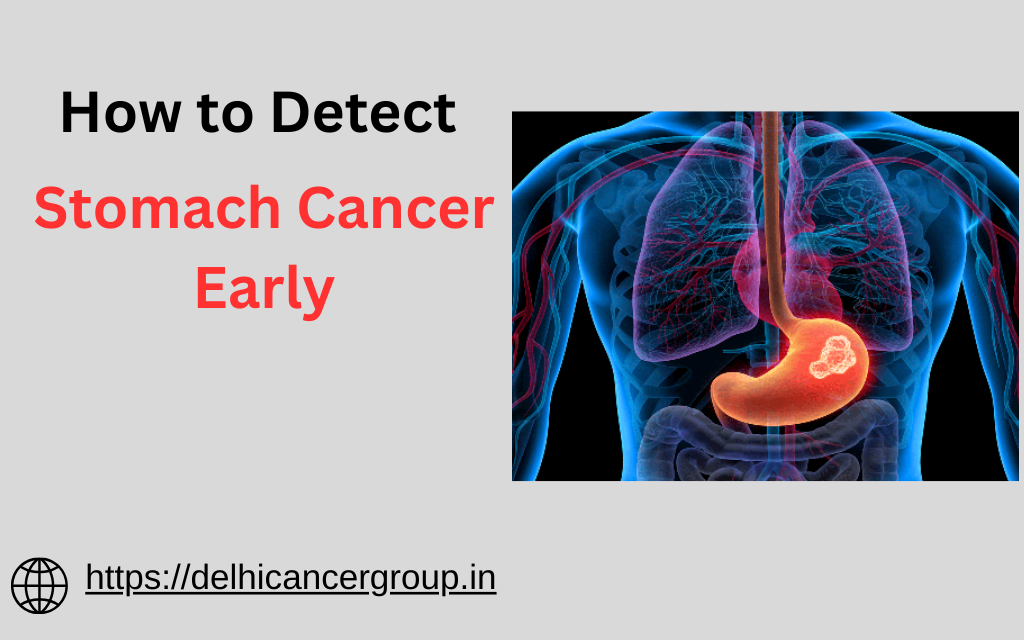BLOG DETAILS

How to Detect Stomach Cancer Early?
Stomach cancer, also known as gastric cancer, is a serious health condition that can be challenging to detect in its early stages. Early detection significantly improves the chances of successful treatment and can lead to better outcomes. Here are some key steps and information on how to detect stomach cancer early.
1. Understand the Risk Factors
Awareness of risk factors can help you stay vigilant:
Age: Most cases occur in people over 55.
Gender: Men are more likely to develop stomach cancer than women.
Family History: A family history of stomach cancer can increase risk.
Helicobacter Pylori Infection: This common stomach infection can lead to chronic inflammation and increase cancer risk.
Diet: Diets high in salty, smoked, or pickled foods and low in fruits and vegetables may increase risk.
Smoking: Tobacco use is a significant risk factor.
Previous Stomach Surgery: Previous surgeries for ulcers can increase risk.
Certain Genetic Conditions: Conditions like Lynch syndrome or familial adenomatous polyposis (FAP) can increase the risk.
2. Recognize the Symptoms
Early-stage stomach cancer often has no symptoms or only mild symptoms, but some signs to watch for include:
Indigestion or Heartburn: Persistent discomfort in the stomach area.
Bloating: After meals.
Nausea and Vomiting: Especially vomiting blood.
Unexplained Weight Loss: Significant weight loss without trying.
Loss of Appetite: Feeling full after eating small amounts.
Fatigue: Persistent tiredness without a clear cause.
Stomach Pain: Particularly if it is persistent and severe.
3. Regular Screening and Medical Check-ups
Regular medical check-ups can help detect stomach cancer early, especially for those at higher risk:
Endoscopy: An endoscope is used to view the stomach lining and take tissue samples.
Biopsy: If suspicious areas are found, a biopsy can confirm the presence of cancer.
Imaging Tests: CT scans, X-rays, and other imaging tests can help diagnose and stage stomach cancer.
Blood Tests: Certain blood tests can help detect cancer markers.
4. Seek Medical Advice for Persistent Symptoms
If you experience persistent symptoms like those listed above, seek medical advice promptly. Early detection often involves proactive measures:
Visit Your Doctor: Discuss any concerning symptoms or risk factors with your healthcare provider.
Gastroenterologist Referral: A specialist in digestive diseases can provide more detailed evaluations and recommendations.
Family History: Inform your doctor about any family history of stomach cancer or related conditions.
5. Maintain a Healthy Lifestyle
Adopting a healthy lifestyle can reduce your risk and aid in early detection:
Healthy Diet: Consume a balanced diet rich in fruits, vegetables, and whole grains.
Limit Salt and Processed Foods: Reduce intake of salty, smoked, and pickled foods.
Quit Smoking: Seek help to quit if you smoke.
Regular Exercise: Maintain a healthy weight through regular physical activity.
Limit Alcohol: Reduce alcohol consumption.
Conclusion
Early detection of stomach cancer can save lives. By understanding the risk factors, recognizing the symptoms, undergoing regular screening, and maintaining a healthy lifestyle, you can improve your chances of detecting stomach cancer early. If you have concerns, don't hesitate to seek medical advice. Your proactive approach can make a significant difference in your health and well-being.
Copyright © Delhi Cancer Group
Designed and Developed By Digidotes (Healthcare Digital Marketing Company)

